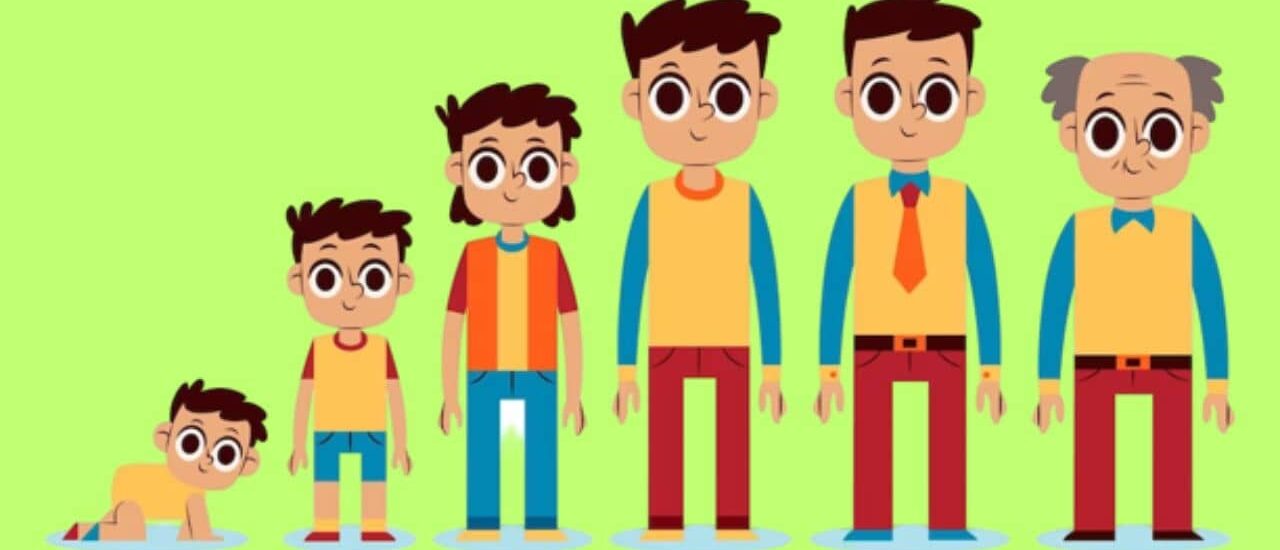Child development is a fascinating journey characterized by distinct stages, each filled with unique milestones and challenges. As parents and caregivers, understanding these stages is essential for providing the best support and nurturing environments for children’s growth. In this blog post, we’ll take you through the stages of child development, from infancy to adulthood, offering valuable insights into each phase and how you can contribute to your child’s holistic development.
Infancy (Birth to 2 Years)
Infancy is a period of rapid transformation and exploration. During this stage:
– Physical Development: Babies experience remarkable growth in height and weight. They achieve motor milestones like rolling over, sitting, crawling, and walking.
– Cognitive Development: Infants grasp object permanence and begin to problem-solve. They also acquire language skills, responding to sounds and starting to babble.
– Social and Emotional Development: Attachment to caregivers is formed, and infants communicate through crying, cooing, and smiles.
Early Childhood (2 to 6 Years)
Early childhood is marked by imaginative play and language development:
– Physical Development: Children’s motor skills advance, allowing them to scribble, draw, and perform basic tasks.
– Cognitive Development: Language development accelerates, and children engage in pretend play. They understand basic concepts of time and space.
– Social and Emotional Development: Children build friendships, develop empathy, and start forming a sense of self-identity.
Middle Childhood (6 to 11 Years)
Middle childhood emphasizes cognitive and social growth:
– Physical Development: Children experience steady growth, refining motor skills and participating in organized activities.
– Cognitive Development: Critical thinking and problem-solving abilities improve. Reading, writing, and math skills progress.
– Social and Emotional Development: Peer relationships become more intricate, and children learn cooperation, rules, and responsibility.
Adolescence (12 to 18 Years)
Adolescence is a period of self-discovery and identity formation:
– Physical Development: Puberty brings rapid physical changes, including growth spurts and the development of secondary sexual characteristics.
– Cognitive Development: Abstract thinking and reasoning skills flourish, leading to exploration of personal values and future goals.
– Social and Emotional Development: Peer relationships become pivotal, independence is sought, and emotional fluctuations are common.
Early Adulthood (18 to 40 Years)
Early adulthood involves personal and career development:
– Physical Development: Physical peaks are reached, while health choices impact future well-being.
– Cognitive Development: Lifelong learning continues, with career and personal experiences shaping cognitive abilities.
– Social and Emotional Development: Intimacy and relationships are established, career goals pursued, and self-identity solidified.
Middle Adulthood (40 to 65 Years)
Middle adulthood centers on maintaining equilibrium:
– Physical Development: Age-related changes appear, requiring attention to health and well-being.
– Cognitive Development: Cognitive stability is maintained, with accumulated life experiences contributing to wisdom.
– Social and Emotional Development: Balancing responsibilities, adapting to changing roles, and seeking personal fulfillment are central.
Late Adulthood (65+ Years)
Late adulthood involves reflection and legacy-building:
– Physical Development: Aging processes become more apparent, necessitating healthy lifestyle choices.
– Cognitive Development: Cognitive variability exists, influenced by mental engagement and life experiences.
– Social and Emotional Development: Reflection on life achievements, adaptation to retirement, and fostering meaningful relationships occur.
Conclusion Understanding child development stage by stage empowers parents and caregivers to provide tailored support for their child’s growth. From nurturing attachment in infancy to guiding adolescents through self-discovery and beyond, each stage presents opportunities to promote holistic development. By being knowledgeable about the unique characteristics and challenges of each stage, you can create environments that nurture emotional, cognitive, and social well-being, setting the foundation for a successful and fulfilling life journey.













